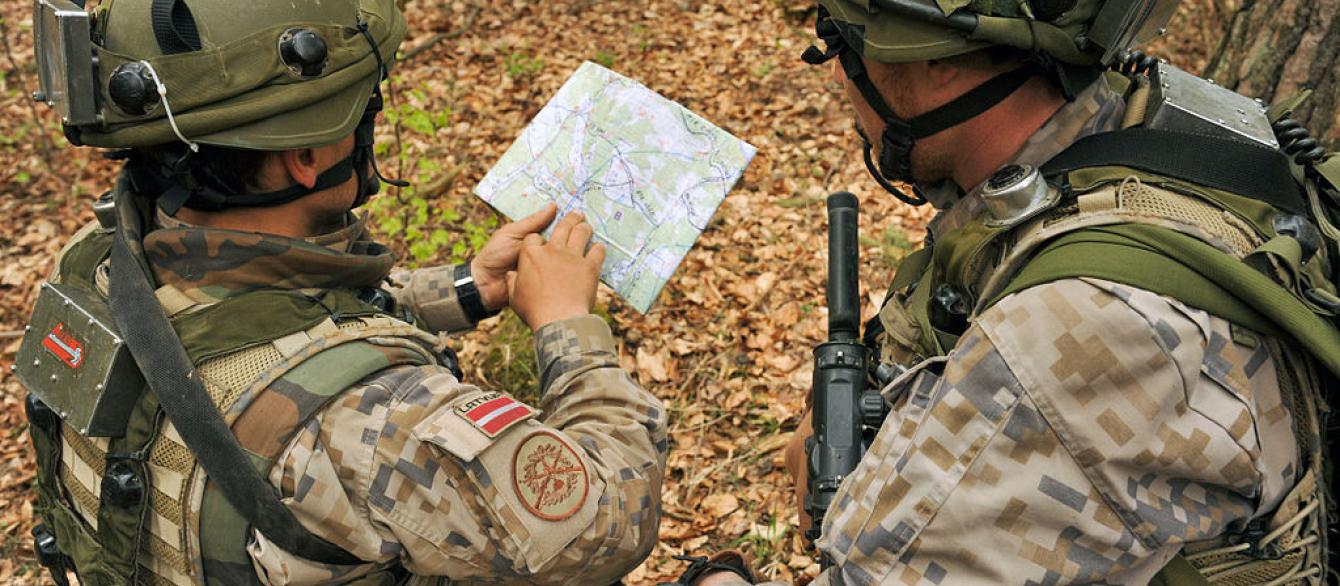This piece was originally published by the Baltic Initiative at the Foreign Policy Research Institute (FPRI). Learn more about FPRI's Baltic Initiative on Substack.
In July 2023, the first Latvians started their 11-month State Defense Service, as the recently reinstated conscription is called. The first year of conscription has gone smoothly. There have been no severe mishaps or scandals, and public support has remained high. But the road ahead may encounter some bumps as Latvia started with low enrollment numbers and at a slow pace. There are already fewer volunteers to fill the ranks of soldiers, and the total number of conscripts will expand significantly over the next few years.
The First Year of Conscription
Latvia was the last country among its Baltic and Nordic neighbors to reinstate conscription, where compulsory service was previously abolished in 2006, effective 2007. While Lithuania and Sweden brought conscription back after Russia occupied Crimea and started the war in Ukraine’s east in 2014, Latvia did not follow the example of its neighbors (Estonia had not abolished conscription). Instead, Latvia opted to rely on the volunteer National Guard and a new national defense education course in schools to supplement its professional forces.
Policymakers in the defense sector held unfavorable views on the reinstatement of conscription, and public opinion was polarized. Therefore, it was safe to assume that any defense minister risked political suicide by proposing a return to compulsory service. Conscription was traditionally associated with the Soviet system, which was known for violence against conscripts. Furthermore, young people generally saw no value in the service and did not want to interrupt their careers.
Russia’s 2022 invasion of Ukraine provided an impetus to change course. The reasoning was as simple as the lack of soldiers: There were more than 800 vacancies in the National Armed Forces at the beginning of 2022. Latvia’s Minister of Defense Artis Pabriks announced the decision to bring back conscription in July 2022. Subsequently, he and his political party Attīstībai/Par! (Development/For!) were not reelected in the October parliamentary election, but it is not clear if the decision on conscription played a role in the election.
The first two intakes of the 11-month state defense service consisted solely of volunteers. In July 2023, 253 volunteer conscripts started their service, and in January 2024, 125 volunteers began. In early 2024, an additional 20 individuals began voluntary service in the alternative conscript services — in the National Guard and student service.
Public Opinion
For three years in a row, Riga Stradiņš University, in cooperation with the Center for Geopolitical Studies Riga, has explored the public’s views on conscription in nationally representative face-to-face public polls. All three polls were conducted by the SKDS research center with 1,010 respondents surveyed in May 2022, 1,002 in June 2023, and 1,004 respondents reached in March 2024.
In the May 2022 poll, two months before the Latvian Ministry of Defense announced its proposal to bring back conscription, only 44.7% expressed support for conscription, while 42.2% were against it. This data, illuminating public polarization on the issue, was similar to surveys conducted in earlier years.
In the June 2023 poll, one month before the first volunteer soldiers started their state defense service, 61.1% of respondents expressed their support for conscription, while 29.2% held negative views.
In March 2024, as the first batch of state defense service approached their demobilization, 64% of respondents supported conscription, but 27.1% did not. Older respondents held the most favorable views (74.7% of those above 65), while the youngest were the least in favor of conscription (45.3% of respondents aged 18 to 24). As it has been traditionally in Latvia, the language spoken in the family was also a factor: 72.8% of Latvian-speaking respondents held positive views on the issue of conscription, while 50.0% of Russian-speaking survey participants agreed. Finally, views differed by geographical region. The most positive respondents were those living in Zemgale, the southern part of Latvia, where 81.5% expressed support. The least sympathetic towards conscription were respondents in Latgale, which borders Russia and Belarus (46.5% in favor).
The Way Forward for Conscription in Latvia
Latvia reintroduced conscription with low numbers and at a slow pace. While Latvia started with some 400 state defense soldiers in the first two calls, in neighboring Estonia and Lithuania, conscripts number around 4,000 yearly. In the 2024 calendar year, the number of Latvia’s conscripts will grow and continue to rise in the following years, reaching the levels of Estonia and Lithuania in 2028. Vitālijs Rakstiņš from the Latvian Ministry of Defense argues that the main reason for the current pace is insufficient infrastructure and instructors to support larger calls.
On the one hand, the sleepy start is understandable. After years of societal polarization, the defense sector wanted to reintroduce compulsory service the right way and avoid public uproars that could derail the entire process. On the other hand, given Russia’s continuous assault on Ukraine and expanding gray zone activities in the Baltics and far beyond, the approach to conscription could have been more courageous and swifter.
Increasing the number of conscripts is likely to create challenges. As more people face mandatory enlistment, there is a risk that more will become dissatisfied with the approach.
The first mandatory intake, scheduled for mid-2024 will see 69 men aged 18 to 27 conscripted under the mandatory clause, along with 390 volunteers. Rakstiņš argues that preparations have been going well so far, with no notable incidents.
Sooner or later, the issue of conscripting women will be on the table. Denmark recently opted for gender-equal conscription, following Norway’s example. Currently, women can apply voluntarily. A previous public poll in Latvia found that only around one-fifth of respondents held favorable views on this issue. This probably makes decision-makers risk-averse when it comes to including women in mandatory service.
Finally, the issue of Latvia’s citizens living abroad might become a stumbling block. Enlisting Latvia’s citizens who are permanently residing abroad was postponed until 2027. Latvia’s citizens with no or a limited link to Latvia will have to serve as conscripts if called up. This could incentivize some dual citizens to renounce Latvian citizenship, undercutting a policy goal of encouraging close connections with the Latvian diaspora. On the other hand, 11 months in Latvia has a fair potential of strengthening the bond with the country. A passport comes with not only opportunities but also obligations.
The opinions and analysis herein are solely those of the author.






